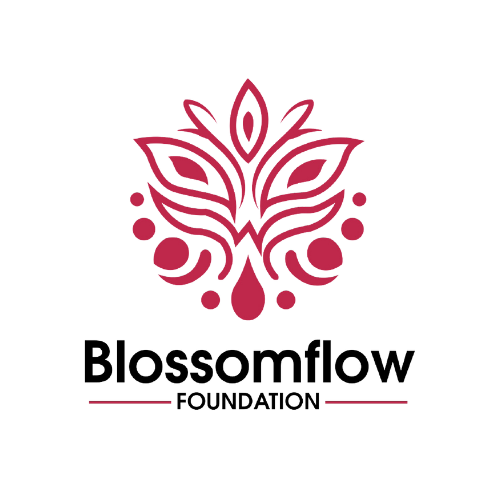
The Power of Vulnerability: Why It’s Okay to Ask for Help
In a world that often celebrates strength and independence, vulnerability can feel like a weakness. But what if I told you that true strength lies in the ability to ask for help when you need it? As women, we’re conditioned to juggle multiple roles, handle challenges on our own, and show up as “superwomen” in every area of our lives. But the truth is, we don’t have to do it all alone. Strength in vulnerability allows us to open up and build meaningful connections that make us stronger together.
Asking for help doesn’t make you weak—it makes you human. It allows you to build meaningful connections, gain fresh perspectives, and find the support you need to navigate life’s challenges. Let’s dive into how asking for help can be a source of strength, and how to build a support system that uplifts you.
Why Vulnerability Is a Strength
Vulnerability isn’t about weakness or failure—it’s about honesty, courage, and openness. It’s the ability to acknowledge that, as much as we may want to, we can’t do everything on our own. The Strength in vulnerability is the first step toward growth and healing. Here’s why it’s so powerful:
1.Embracing Our Humanity
No one is invincible. By acknowledging our struggles and asking for help, we embrace the fact that we are human—and that’s perfectly okay. It’s this acceptance of ourselves that fosters compassion and self-love, embracing the strength in vulnerability.
2.Building Deeper Connections
When we open up about our challenges, it encourages others to do the same. Vulnerability creates a sense of shared experience and connection, allowing us to bond with others on a deeper, more authentic level. Our strength lies in forming genuine, supportive relationships.
3.Learning and Growing
Asking for help is a sign of wisdom, not weakness. It shows that you’re willing to learn, to ask for advice, and to grow from the support and guidance of others. No one has all the answers, and that’s okay. Our strength comes from embracing the opportunity to learn.
4.Strengthening Resilience
Leaning on others during tough times can make you even stronger. Asking for help allows you to bounce back faster, knowing that you’re not alone. It creates a safety net that makes you more resilient and capable of handling future challenges. This is the strength in vulnerability.
Stories of Strength: Women Who Overcame Challenges by Asking for Help
Throughout history and in everyday life, countless women have demonstrated that asking for help is not a sign of weakness, but of great strength. Let’s look at some inspiring examples:
Sarah’s Career Leap
Sarah had always dreamed of starting her own business but felt overwhelmed by the idea of doing it alone. One day, she decided to ask for help. She reached out to a mentor who had been in the industry for years. With her mentor’s guidance, Sarah launched her business and saw incredible success. It was the act of asking for advice and building a support network that made all the difference. This demonstrates strength.
Anna’s Postpartum Journey
Anna faced a difficult postpartum period after giving birth to her second child. She struggled with exhaustion, isolation, and anxiety. For weeks, she tried to manage on her own, but eventually, she reached out to her sister for support. Her sister helped with the baby, offered emotional encouragement, and even joined her in postpartum therapy sessions. Asking for help was a turning point for Anna, allowing her to heal and regain her strength. Strength in vulnerability was key to her recovery.
Maria’s Health Battle
After being diagnosed with a chronic illness, Maria felt defeated. The weight of her diagnosis was heavy, and she didn’t want to burden anyone with her pain. But when she finally opened up to a close friend, Maria was overwhelmed by the support she received. Her friend not only listened but also connected her with a network of people living with the same condition. Asking for help didn’t just ease Maria’s burden—it gave her access to resources, advice, and a powerful community. Strength in vulnerability helped her find the support she needed.
These stories show how asking for help creates a ripple effect of support that can transform our lives. No matter what challenges you face, remember that leaning on others can help you navigate the toughest times with strength in vulnerability.
How to Ask for Help and Build Your Support System
Asking for help doesn’t come naturally to everyone. Many women feel guilty or embarrassed to reach out. But asking for help is a vital life skill, and it’s essential for building a network of support. Here are some tips for doing it with confidence:
1. Recognize That Asking for Help Is Not a Burden
Understand that asking for help doesn’t make you a burden. Most people want to be there for you, and by allowing them to support you, you’re giving them the opportunity to feel valued. People like to help—so don’t hesitate to reach out. There’s strength in vulnerability when you allow others to assist you.
2. Be Clear About What You Need
When asking for help, be specific about what you need. Whether it’s emotional support, advice, or practical help, being clear about your needs helps others understand how they can assist you. For example, instead of saying, “I need help,” try “I’m struggling with work-life balance right now—could you help me brainstorm some time management strategies?” The strength is in asking clearly for the support you need.
3. Start Small
If you’re not used to asking for help, start with smaller requests. It could be asking a friend to help you with a task or seeking advice from a colleague. The more you practice, the easier it will become to lean on others when you need support. Strength in vulnerability grows as you start small and build your confidence.
4. Build a Circle of Support
Building a support system takes time, but it’s essential for long-term well-being. Surround yourself with people who uplift and encourage you—whether it’s friends, family, mentors, or even online communities. Mutual support is key to feeling empowered and understood. The strength in vulnerability is amplified when we build a supportive circle.
5. Learn to Receive
It’s important not just to ask for help but also to receive it with gratitude. Often, women struggle with accepting help because of pride or fear of vulnerability. Allow yourself to receive the support offered—this is an essential part of building strong, reciprocal relationships. Strength in vulnerability is about both giving and receiving.
The Power of Community and Connection
Asking for help is a reminder that we are not alone. Women have been supporting and uplifting each other for generations, and there is power in that community. When we let go of the idea that we have to do everything ourselves, we create space for connection, empathy, and strength. Strength in vulnerability allows us to open up to others and connect more deeply.
So, let’s embrace vulnerability. Let’s normalize asking for help. Because in that moment of reaching out, we’re not just receiving help—we’re also empowering ourselves and the women around us, showcasing our individual strengths.
Conclusion
Remember, there is strength in vulnerability. Asking for help doesn’t diminish you—it magnifies your wisdom, resilience, and growth. It allows you to lean on others, build lasting relationships, and become more connected with the world around you.
You are not alone. You don’t have to carry the weight of the world by yourself. It’s okay to ask for help—it’s a sign of strength, not weakness, and strength in vulnerability is where true growth begins. For more info, locate our Blog Section.
All Categories
Recent Posts
Why SDG 4 Cannot Be Achieved Without Ending Period Poverty
Tags
Give them a helping hand
Every donation fuels our mission to combat period poverty. Your generosity brings us closer to menstrual equity.
+234-909-482-1642
inquiries@blossomflow.org




